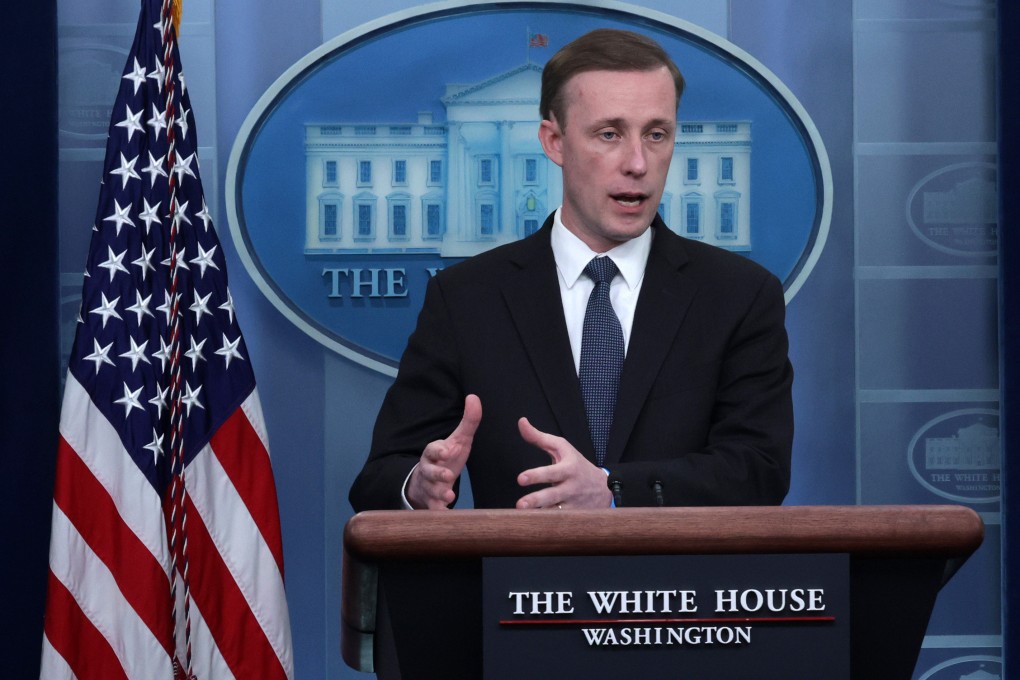US security adviser says hard line on Russia is needed to dissuade China from similar moves
- National Security Adviser Jake Sullivan says an unchallenged invasion of Ukraine would embolden ‘other would-be aggressors, like China’
- Speaking at a think tank conference, Sullivan says his recent meeting with top Chinese diplomat covered Ukraine, Taiwan and North Korea

US National Security Adviser Jake Sullivan said on Thursday that the US was standing firm against Russia and its invasion of Ukraine to dissuade “would-be aggressors” like China from taking similar actions.
“If the United States let [Russia’s invasion of Ukraine] stand without challenge or check, it would send a message to other would-be aggressors, including China, that they could do the same thing,” Sullivan said.
“And then all of a sudden you’re looking at major countries with significant militaries taking territory, and in doing so, destabilising not just the … rules-based international order but the global economy in really profound and fundamental ways that ended up hurting everyday people here in the United States,” he added.
Sullivan’s remarks, which placed China at the centre of US thinking behind its backing of Ukraine, came during a speech at the three-day virtual conference on national security hosted by the Centre for a New American Security (CNAS).
